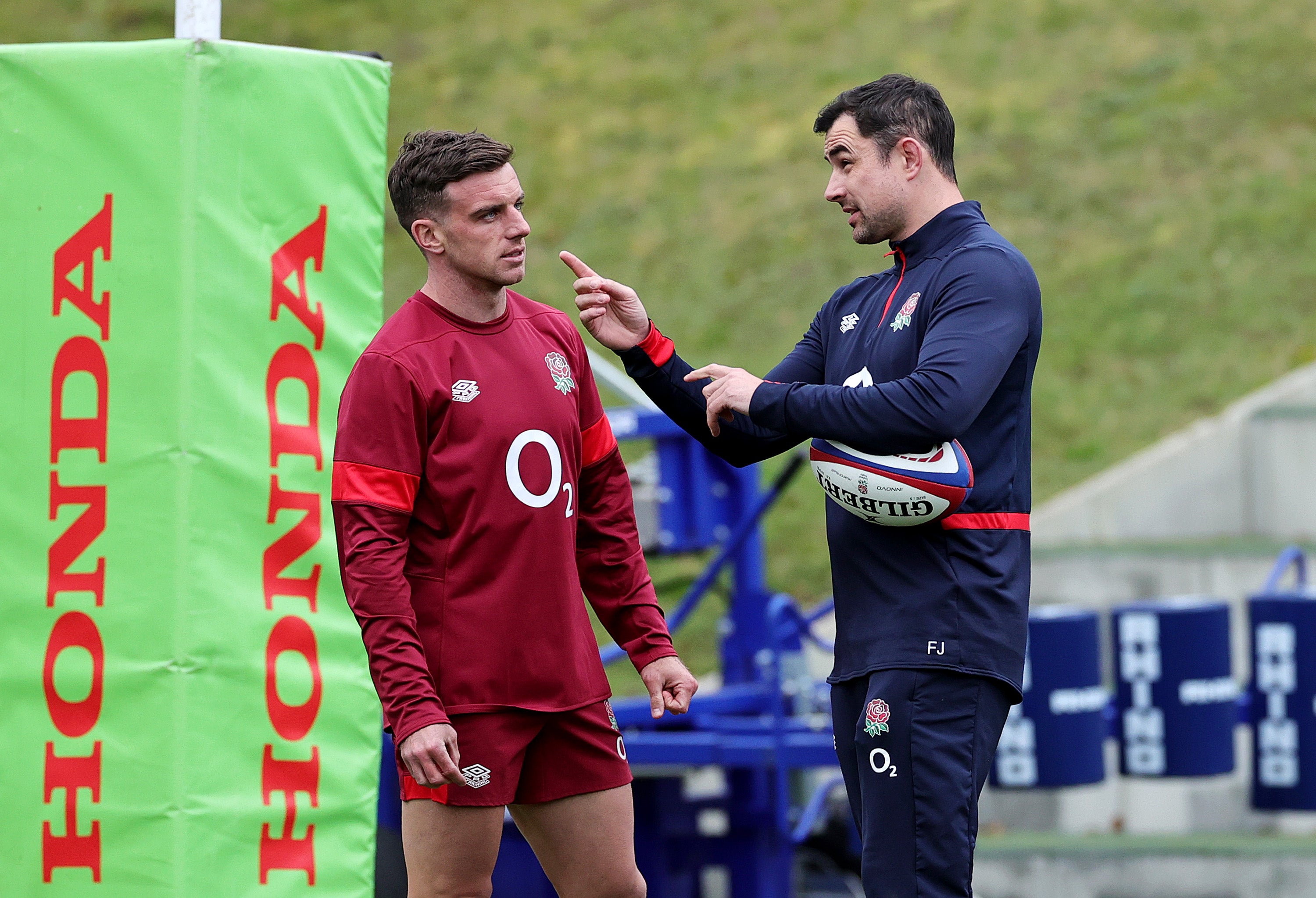Dangerous defence the best form of attack as England build something special
New defence coach Felix Jones has implemented an aggressive blitz defence that helped England subdue Wales in a dramatic Six Nations clash at Twickenham

Your support helps us to tell the story
From reproductive rights to climate change to Big Tech, The Independent is on the ground when the story is developing. Whether it's investigating the financials of Elon Musk's pro-Trump PAC or producing our latest documentary, 'The A Word', which shines a light on the American women fighting for reproductive rights, we know how important it is to parse out the facts from the messaging.
At such a critical moment in US history, we need reporters on the ground. Your donation allows us to keep sending journalists to speak to both sides of the story.
The Independent is trusted by Americans across the entire political spectrum. And unlike many other quality news outlets, we choose not to lock Americans out of our reporting and analysis with paywalls. We believe quality journalism should be available to everyone, paid for by those who can afford it.
Your support makes all the difference.Basking in the warm afterglow of a victory over fierce rivals Wales, England captain Jamie George was asked about the impact that new defence coach Felix Jones has had on the team. “I think he would love us to defend 100 phases at a time if we could,” laughed the always-gregarious George, before perhaps realising that wouldn’t exactly be a recipe for winning many Test matches and adding “but we try not to do that.”
Like most sports, it’s almost impossible to win in rugby if you don’t have the ball but you get the feeling that if any man could make it possible, it’s Jones. A key part of the South Africa coaching staff in their back-to-back World Cup wins, Springboks players spoke in awe about the level of detail he brought to training sessions: viewing the extraordinary amount of analysis held on his ever-present laptop is said to not be for the faint-hearted.
That the ex-Ireland international was able to be lured to England as he sought a new challenge after a little over four years in South Africa was something of a coup for Steve Borthwick. The respect was clear from anyone connected with the Springboks whenever Jones’s name was mentioned and he has set about installing his patented defensive system into a rebuilding England side.

All international teams talk about craving line speed in defence but in the same way that Manchester City take the widely-held desire for possession football to the extreme under Pep Guardiola, so Jones demands ferocious ‘line speed-plus’ from his England defence.
Any concern about being caught with your trousers down due to space left out wide is brushed off as a ferocious blitz defence sees players shoot out of the line to disrupt the ball around the ruck and the inside channels. The idea is that by giving the opposition’s first or second receiver almost no time to think before they are enveloped by a defender shot out of a cannon, you will either force a mistake or push them back behind the gain line. South Africa mastered this aggressive style of defence that perfectly complemented the traditional Springbok physicality and rode it to successive Webb Ellis Cups.
South Africa’s World Cup-winning coach Jacques Nienaber claimed it took 14 games for the Springboks to adjust to their new defensive system and, in that time, they lost 50 per cent of their games. The fact that since the 36-year-old joined the set-up England have two wins from two in the Six Nations bodes extremely well.

The impact against Wales was evident for all to see. Towards the end of the first half, England put together a stellar 25-phase defensive effort, repelling their opponents on the edge of the 22 and eventually forcing a Tomos Williams knock-on and a turnover. Wales couldn’t penetrate the aggressive blitz.
To end the match, England kept Wales pinned in their own half for another 20-odd phases before Ioan Lloyd resorted to a chip over the top that Freddie Steward returned with interest. From back in their own 22, and forced to run as the clock passed 80 minutes and needing a score to turn the game round, Wales went through another double figures worth of phases as England knocked them back before Lloyd, bereft of options, desperately launched a cross-field kick that saw Rio Dyer land in touch and that was game over. A 16-14 win for the hosts.
Even England’s first try came from what Jones is implementing without the ball. Maro Itoje almost single-handedly disrupted a kick-off before two aggressive phases of defence pinned Wales under their own posts, where Lloyd was again turned over and from the resulting scrum, Ben Earl powered through three tacklers to score.
“Felix Jones has come in and spoken about loving defence,” George went on to explain. “We love the system. Kevin Sinfield did a great job laying the foundations and Felix has brought crazy energy. It’s infectious and we’ve bought into what he's doing. We now have a greater understanding of what he wants. The defence is multi-phase and we love when teams go as many phases as Wales did. We really enjoyed that defensive effort today.”

Yes, England conceded two tries but the penalty try for Ethan Roots collapsing an inexorable driving maul was a separate issue, and Alex Mann’s score came up the middle from two superb offloads by Gareth Thomas and the immense Tommy Reffell that even a more traditional defence would have struggled to stop.
There are caveats to this of course. Italy exposed the Achilles heel somewhat in the Six Nations opener as they exploited the space out wide to the tune of three runaway scores, although England did improve in the second half. They were better still against Wales and that week-to-week and game-to-game improvement is vital in the early stages of the system being implemented.
Another caveat is that while England are two from two in this championship, those largely unconvincing victories are against probably the two weakest sides. How Finn Russell, for example, deals with the blitz defence in his face in round three at Murrayfield will be fascinating and much more of a litmus test for this system. A 77-cap magician at No 10 will presumably be considerably less of a rabbit in the headlights than an overmatched Lloyd looked at times on Saturday evening.
In reality, Jones’s defensive system is still a work in progress but when you can’t confidently point to any real progress for England’s badly faltering attack, once again lacking in any real precision or accuracy against Wales, leaning on the defence as the best form of attack as they go through this rebuild may just be the way to create something special.
Join our commenting forum
Join thought-provoking conversations, follow other Independent readers and see their replies
Comments